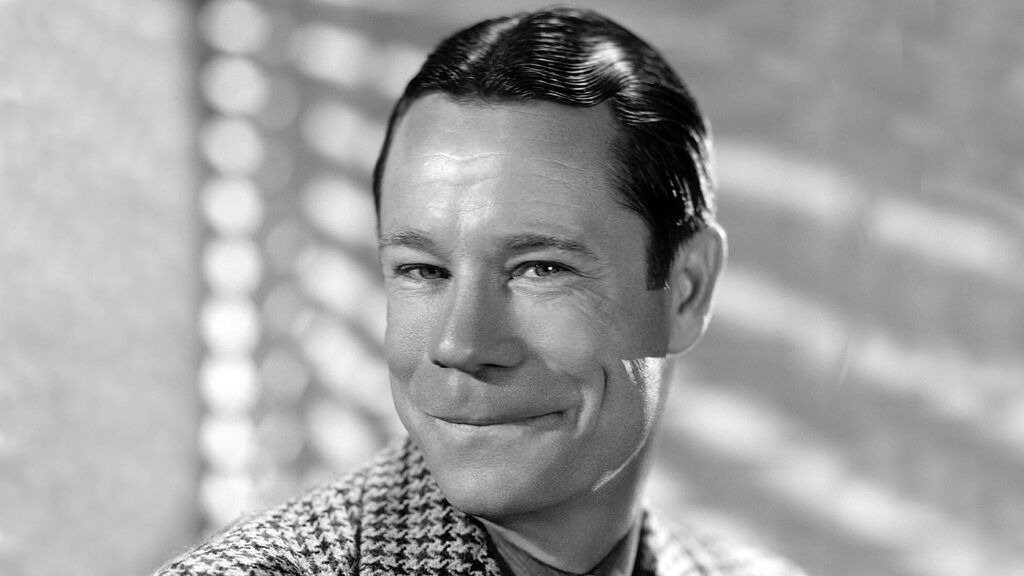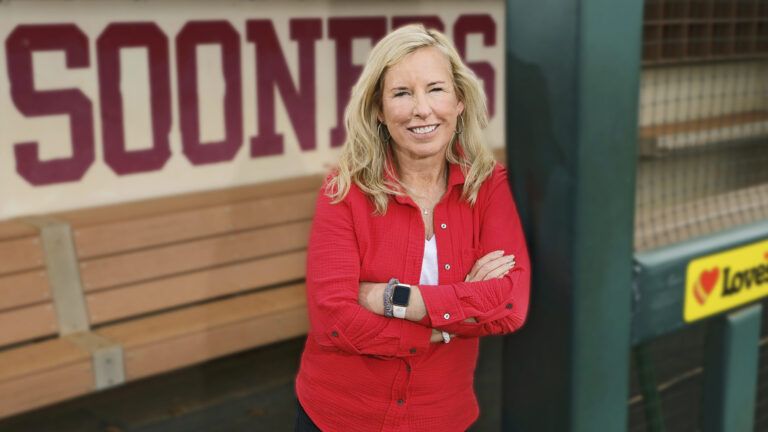The day began so normally: a leisurely breakfast, a casual reading of the paper and a glance through my mail. When f first saw the smoke it was in the hills behind us, not rising slowly like smoke should rise but flattened out before the wind.
“Kathryn,” I said to my wife, “that looks like a fire!”
Kathryn gazed at the distant smoke for a while and asked for more coffee. For 20 minutes we forgot about the fire.
When I looked again I could see flames. I suggested to Kathryn that we pack some things in case we had to leave the house. But still we did nothing.
READ MORE: MINNIE PEARL ON RECOGNIZING GOD’S GIFTS
Less than ten minutes later we had to run to save our lives. We dashed empty handed to our car and raced out the driveway just as our roof caught fire. Before we were out of sight of the house it was gone, swallowed in a single gulp by the flames.
This was the fire disaster of last November 7th which destroyed 430 homes in the Bel Air-Brentwood district of Los Angeles. Because of the dryness and high wind, a wall of fire developed which raced up and down hills with unbelievable speed, devouring homes, trees, cars, anything in its path.
Hours later when I looked at the rubble and ashes that had so recently been our home, I was sick inside. Not so much because of the loss of a building, much as we loved it, but because priceless mementos of a lifetime were gone. Letters, films, awards, tapes, and family scrapbooks—each a tangible link to a cherished memory—and few could be replaced.
Kathryn and I moved to a room at the Beverly Hilton Hotel, nursing our hurts. A paralyzing depression enveloped us. And then, in the midst of our gloom, the mail began to arrive, armfuls: from friends throughout the world.
“Dear Joe: I am ten. I am so sorry about the fire. Please come and stay with us. You can sleep in my room.”
“Dear Joe: I offered my Communion intention for you at Mass today.”
“Don’t worry, Joe. One loss you’ll never have is the gratitude so many of us feel toward you.”
Kathryn and I sat in our hotel room and read the letters over carefully. As we did, a wonderful thankfulness began to fill us. It was a thankfulness for the hundreds of friends who surrounded us by their expressions of affection. Each one had given a little portion of himself to us at a time when we needed it most:
“Those trophies,” one person had written, “exist in the hearts of the people who gave them to you, and no fire can quench that sort of love.”
These wonderful letters brought home to me a lesson I keep learning over and over again for disaster, heartbreak and personal loss have been with me throughout my life. And always I have come to the same conclusion:
In everything bitter there is buried something sweet.
READ MORE: JOE E. BROWN ON THE POWER OF LAUGHTER
I am sure that God never wished a calamity upon us; I am equally sure that He uses calamity to teach us about His love. For in the midst of heartache is peace and deep in tragedy is understanding.
When I was ten years old I was an acrobat in a circus troupe called “The Marvelous Ashtons.” A great performer by the name of Billy Ashe was my teacher. Billy rehearsed me in flips and somersaults on the trampoline until I was ready to work as a professional.
I liked circus life, but it was brutally rigorous. What with heavy traveling and equipment expense, there was little left for food. For months I ate on ten cents a meal. By sleeping late I could skip breakfast, but I was always hungry.
Then, being the smallest in the troupe, some of the older members would beat me every time I made a mistake. Early in life I came to the cynical conclusion that the world was both harsh and heartless.
On April 18, 1906, after performing our last show in the Haymarket in San Francisco, I was awakened at 5 a.m. by a shake from Billy. The building next door to ours was weaving back and forth. Then a woman’s scream cut through the morning stillness.
We got out of the rooming house within minutes and saw an incredible scene of fire, smoke, gaping cracks in the street and fallen buildings. This famous San Francisco earthquake destroyed most of the city and killed 452 people.
READ MORE: JIMMY DURANTE’S FOUR GIFTS OF FAITH
Several days later we were on a train carrying refugees from the disaster scene. At every stop we were met by people bringing wagons of hot food, soup and coffee. They gave us clothes, shoes, even coats off their backs.
At long last, I had enough to eat. But more important was the kindness. For I felt love pour spontaneously from men and women when they saw suffering. With it came a realization that people were not as cold-hearted as I had imagined. They had compassion, love. This outlook became part of the fabric of my being and has affected my career in a deep, permanent way.
Here was my first discovery of the thread of good that lies buried in the midst of tragedy.
Thirteen years passed, years of hard work as acrobat, circus aerialist, small time hoofer, vaudeville comedian and actor. Then on August 7, 1919, I was to assume the leading comedy role in a hit play on Broadway.
At long last I had made the big time. After four years of patched clothes, canned food and being behind in our rent, my wife, Kathryn, and sons Don and Joe L. could begin to enjoy life.
Someone knocked on my dressing room door. I jerked it open.
“Okay, I’m ready,” I said.
It was the stage manager. “No show tonight, Joe,” he said. “Equity called a strike.”
It seemed like the end of the world. The strike was to be a long one and at that moment I didn’t have enough money to buy a meal. But we managed somehow, borrowing a little here and there. We tightened our belts and did without. The world went on.
READ MORE: BOB HOPE ON THE POWER OF LAUGHTER
Months later the strike ended and I was given the top comedy role in a play that toured the country. This role was the opening wedge in a career on stage and in movies far better than I had dared hope for. So what seemed at first to be a real disaster actually had a great opportunity buried in it. There is always another side to trouble.
Then, 23 years later, I was playing at the Shubert Theater in Detroit. It was wartime 1942 and my son Don, a Captain in the Air Corps, dropped in to see me on his way overseas.
“I think we’re on our way to Australia,” he said. “Gosh, Dad, I wish we could take you with us.”
How I wanted that too! I had been badgering all my influential friends to help me get permission to do a series of shows for troops overseas. “Maybe I’ll meet you there,” I suggested optimistically.
Several nights later, October 8, 1942, I was out by the theatre box office. “Hiya, folks,” I would say as they bought their tickets. Their mouths would drop in surprise and I would kid around with them. It was fun for all of us.
So this night I was there when the phone rang. Someone was calling me from Long Beach, California. I heard a voice say, “We want to reach Joe E. Brown to tell him that his son has just been killed in a training flight… Will you get the message to him?”
“Yes,” I said. “I’ll get it to him. Thank you.”
The next 40 hours were a blur. First there was disbelief; then the deep, dull pain; then anger at God. “Why take Don? He had so much to give.” Don was a natural leader, had fine character and everything to live for…
And I missed him so much. Never, I felt, could anything good be buried in this sorrow.
We were returning in the car from the burial at Forest Lawn when a light suddenly penetrated my grief, and the faces of my wife and son, Joe L., sitting next to me, came into focus. I felt God’s arms around me, comforting and strengthening me.
At that moment came absolute certainty that God would find a way to reclaim the bitterness of death itself.
And that is just what happened. Within three years I traveled more than 200,000 miles visiting American bases on a wartime mission of bringing smiles to boys like Don, boys dressed in khaki and blue and jungle green. Sometimes, of course, I would be tired. Sometimes my old sciatica would make me wince in pain when I was supposed to be laughing.
But the pain of my sorrow for Don was gone. I had a wonderful time flying from base to base. Looking down into those thousands of young faces, I found a new meaning in my work. I had a new message for each of these boys: a personal message of hope and of joy. Never did I speak to a thousand people at once, but always to each individual, personally. Because, you see, every boy was now my son.
For more inspiring stories, subscribe to Guideposts magazine.






